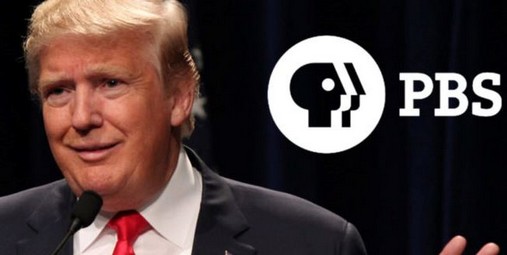Conservatives Cheer Plan to End Subsidies for Public Broadcasting
Trump proposes cuts to federal funding of PBS, NPR — both long criticized for left-wing bias.
President Donald Trump’s administration proposed to fully defund the Corporation for Public Broadcasting (CPB) and its subsidiaries National Public Radio (NPR) and Public Broadcasting Service (PBS) in a budget blueprint released Thursday.
“You won’t see a zero next to it, but the policy is that we’re ending federal involvement with the Corporation for Public Broadcasting,” Office of Management and Budget Director Mick Mulvaney told reporters Thursday.
“Next year it might be zero [but] it may take a while to unwind that relationship, it’s just the nature of contracts,” he said.
“We’re ending federal involvement with the Corporation for Public Broadcasting”
The CPB, NPR, and PBS have long been targets of conservative ire.
“This is fantastic news. There is absolutely no reason for the Corporation for Public Broadcasting (CPB) to receive taxpayer funding,” said Brent Bozzell, president of the Media Research Center, in a statement. “I have long opposed taxpayer subsidization of public broadcasting because it’s not the federal government’s business to prop up media entities with taxpayer money.”
Small government adherents are at odds with the belief that the state should fund such broadcasting and advocated the roughly $450 million a year the CPB receives in federal funding could be better spent elsewhere, used to pay down the national debt or returned to the taxpayers in the form of a tax cut.
Social conservatives too have long protested the spending of their tax dollars on funding what is seen as often blatant, often radical, left-wing narratives and opinions.
“Government shouldn’t fund propaganda aimed at its citizens — from any point of view,” Dan Gainor, vice president of business and culture at the Media Research Center told LifeZette. “The reality is, however, that NPR and PBS only push a left-wing agenda which is why the major media are all racing to their defense,” he said.
And racing they are. On Thursday afternoon, The Washington Post published an op-ed by Alyssa Rosenberg titled, “If Trump really wants to unify American culture, he should fund public broadcasting.”
“I care deeply about cultural literacy, the idea that we should all have access to a shared set of core concepts that will not only make it easier for children to learn to read and write, but that will give Americans at least some common language and ideas we can use to understand each other across our differences,” Rosenberg wrote.

But that is precisely the rub. Public broadcasting networks are seen by conservatives as promoting a liberal, secular, and globalist worldview — not a set of shared American values.
“If there are any doubts about how left-wing these outlets are, [just] look back at the Soros-funded NPR’s video scandal from 2011,” said Gainor.
In 2011, NPR CEO Vivian Schiller was forced to resign following the release of a sting video that showed Ron Schiller (no relation), a leading NPR executive, harshly criticizing conservatives.
After calling conservatives “anti-intellectual,” Schiller proceeded to single out what he called “Tea Party people.” They aren’t “just Islamophobic, but really xenophobic. I mean basically they are, they believe in sort of white, middle-America gun-toting. I mean, it’s scary. They’re seriously racist, racist people,” said Schiller.
A year earlier, NPR contributor Juan Williams was let go from his contract with the organization after saying on Fox News that he felt nervous flying with Muslims following 9/11.
In January 2017, the National Review reported that the “The Rise Above Conference” held that month would be attended by PBS Vice President Toby Chaudhuri.
The conference was for leftists in the legal profession, designed to “harness, empower and coordinate the unprecedented political energy that has emerged since Donald Trump won the Presidency” and “convert that momentum” into “legal resistance to the incoming Trump Administration and Republican controlled Congress,” according to the event’s description.
Following the publication of the National Review article, PBS issued a statement explaining that Chaudhuri was due to leave PBS before the conference and that partaking in it while in the employ of PBS would indeed be a violation of PBS’ rules.
“Mr. Chaudhuri was notified last year that his employment would end this month. He is due to leave the organization prior to this event,” PBS said. “His participation in this event was not approved by PBS. His role as described would be a violation of our commitment to nonpartisanship.”
Nevertheless, the Chaudhuri episode illustrates the fundamental problem with public broadcasting. “If you want to create a genuine national culture,” writes Rosenberg in her defense of public broadcasting, “you actually have to reach all Americans.”
Doing so is virtually impossible when the people running the public broadcasting networks want to push a partisan, political vision at odds with much of the heartland of the nation.





